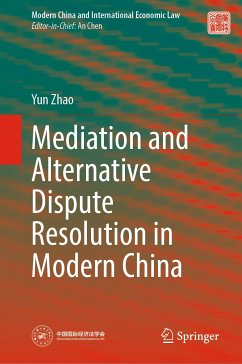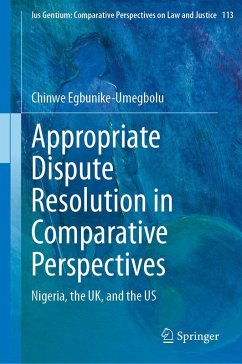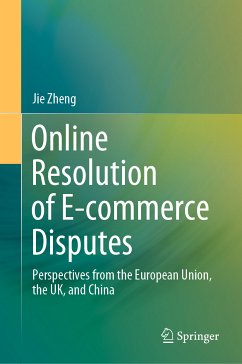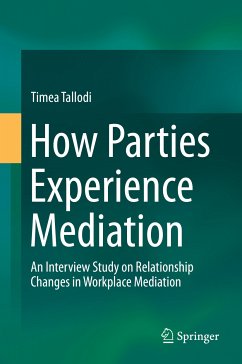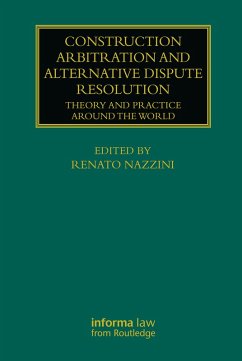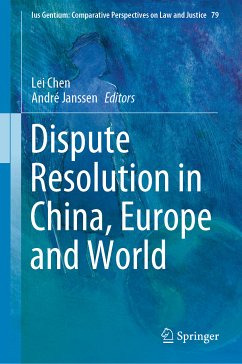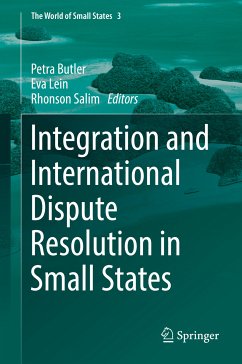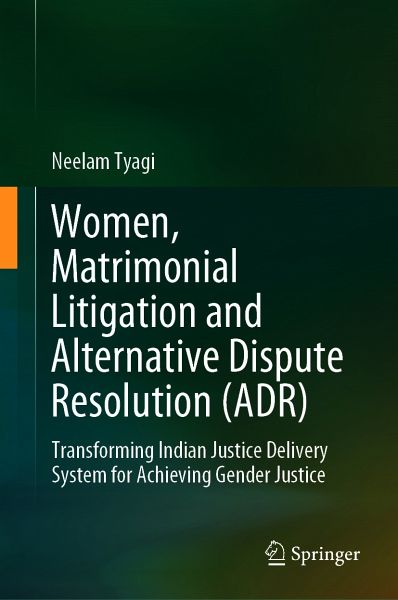
Women, Matrimonial Litigation and Alternative Dispute Resolution (ADR) (eBook, PDF)
Transforming Indian Justice Delivery System for Achieving Gender Justice
Versandkostenfrei!
Sofort per Download lieferbar
80,95 €
inkl. MwSt.
Weitere Ausgaben:

PAYBACK Punkte
40 °P sammeln!
This book examines the practice of Alternative Dispute Resolution (ADR) as it stands today in the context of matrimonial disputes and for providing gender justice for women undergoing matrimonial litigation. ADR is a fairly recent but increasingly prevalent phenomenon that has significantly evolved due to the failure of the adversarial process of litigation to provide timely resolution of disputes. The book explores the merit and demerit of traditional litigation process and emergence, socio-legal framework, work environment and success rate of various ADR processes in general and for resolvin...
This book examines the practice of Alternative Dispute Resolution (ADR) as it stands today in the context of matrimonial disputes and for providing gender justice for women undergoing matrimonial litigation. ADR is a fairly recent but increasingly prevalent phenomenon that has significantly evolved due to the failure of the adversarial process of litigation to provide timely resolution of disputes. The book explores the merit and demerit of traditional litigation process and emergence, socio-legal framework, work environment and success rate of various ADR processes in general and for resolving matrimonial disputes in particular. It comprehensively discusses the role of various institutions and attitudes and perceptions of ADR practitioners. It analyzes the influence of patriarchal cultural assumptions of appropriate feminine behaviour and its effect on ADR practitioners like mediators and counsellors that leads to the marginalization of aggrieved woman's issues.
With abrief analysis of the experience and challenges faced with the way the ADR process is conducted, the focus is on probing the vulnerability of aggrieved women. The book critiques the practice of ADR as it is today and offers constructive ways forward by providing suggestions, insights, and analysis that could bring about a transformation in the way justice is delivered to women. This in-depth study is an attempt to guide decision making by bringing forth and legitimizing the battered women's voice which often goes unrepresented, in the debate about the efficacy of ADR mechanism in resolving matrimonial disputes.
The book is of interest to those working for justice for women, particularly in the context of matrimonial disputes -- legal professionals, mediators, counsellors, judges, academicians, women rights activists, researchers in the field of gender and women studies, social work and law, ADR educators, policymakers and general readers who are inclined and interested in bringinga gender perspective to their area of work.
With abrief analysis of the experience and challenges faced with the way the ADR process is conducted, the focus is on probing the vulnerability of aggrieved women. The book critiques the practice of ADR as it is today and offers constructive ways forward by providing suggestions, insights, and analysis that could bring about a transformation in the way justice is delivered to women. This in-depth study is an attempt to guide decision making by bringing forth and legitimizing the battered women's voice which often goes unrepresented, in the debate about the efficacy of ADR mechanism in resolving matrimonial disputes.
The book is of interest to those working for justice for women, particularly in the context of matrimonial disputes -- legal professionals, mediators, counsellors, judges, academicians, women rights activists, researchers in the field of gender and women studies, social work and law, ADR educators, policymakers and general readers who are inclined and interested in bringinga gender perspective to their area of work.
Dieser Download kann aus rechtlichen Gründen nur mit Rechnungsadresse in A, B, BG, CY, CZ, D, DK, EW, E, FIN, F, GR, HR, H, IRL, I, LT, L, LR, M, NL, PL, P, R, S, SLO, SK ausgeliefert werden.




